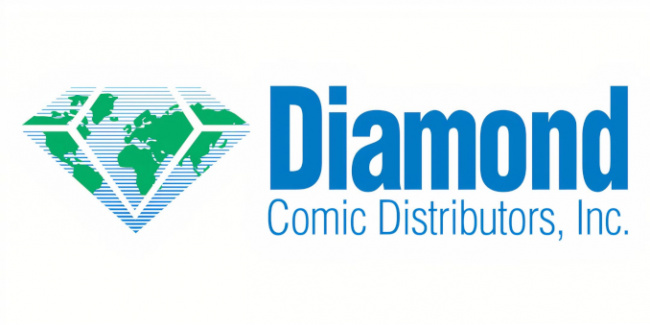As we’ve been reporting on the near-daily, wide-ranging events related to the Chapter 11 bankruptcy filing of one of the largest companies in the geek culture business, I’ve been forming a few thoughts about how we got here, and where we’re headed.
The Chapter 11 filing, which was done to provide time to complete a sale of Diamond and divisions Alliance Game Distributors, Diamond UK, and Diamond Select as going concerns, has sown chaos throughout distribution, retail, and publishing. To get the whole picture, it’s worth a look at how we got here.
How We Got Here
We got here because of the Covid pandemic. The government shutdowns in March and April of 2020 affected all of commerce, but Diamond owner Steve Geppi’s decision to shut down distribution for seven weeks turned out to be disastrous, especially in the comics business. The shut-down was coupled with a reorganization-style timed payout of moneys Diamond owed its suppliers.
For client publishers, those two steps struck at the foundations of Diamond’s image as a reliable, financially strong company. It no longer appeared reliable, because it could cut off access to the market, large parts of which were able to function at some level despite the pandemic, without recourse for the publishers; and it no longer appeared financially strong, because it went to a timed payout almost immediately after the shutdown.
DC Comics moved first, pulling its distribution and awarding it to two companies that had not previously been distributors during the Diamond shutdown; and Marvel Comics followed about a year later (see "Marvel Transformation"). Dark Horse Comics and IDW Publishing followed Marvel to PRH, and Image Comics followed DC to Lunar.
The distribution moves led to a massive reduction in sales: I estimated that Diamond was losing around 60% of its comic sales in mid-2023 (see "Where Does the Image Loss Put Diamond"), and that may have been low.
Then sometime last year, under financial pressure, Steve Geppi decided to sell his companies, and had some success with Alliance Game Distributors, which has a stalking horse bid that will close if no higher bids are received, and Diamond UK, which has a signed sales agreement (see "Diamond Files").
Diamond’s comic store business was apparently a tougher sell, likely for two big reasons. One is that it was tougher to value, as it has been shrinking, and was likely unprofitable. A second is that the fit with potential strategic acquirers is difficult: the multi-category strategy works great for retailers, but isn’t an easy fit with companies that only operate in one of Diamond’s major categories.
Nobody wants to file Chapter 11. The company that files gives up a lot of control, adds tons of expenses, and makes the whole thing public. But Diamond was apparently out of time to get a sale done headed into first quarter, when a distributor’s sales are down and outgoing payments are coming due for big Q4 shipments. February is the graveyard of distributors, and Diamond needed to stabilize the situation to avoid the worst.
Where We Are
An auction for Diamond’s assets is going to be held by March 25, with a sale to close by April 16. There are a lot of potential fits for Alliance, so there may be bidding beyond the stalking horse bid from Universal Distribution. Certainly the acquisition-hungry Asmodee, currently completing its spinoff from Embracer and with a $100 million bank that can be used for acquisitions (see "Will Resume Acquisitions"), could be in the mix, along with private equity-owned companies Flat River Group and Southern Hobby Distributors, other competitors and suppliers, and other companies from inside and outside the games business.
So what about Diamond’s comic store business? The big question here is whether a buyer can envision a way in which Diamond could be profitable, either as part of another company or as a stand-alone business.
Getting to a profitable standalone business from where Diamond is now will likely require big changes, and given that Diamond was unable to get there on its own, it’s good that it has restructuring advisors and an investment bank to help show a path to a positive outcome.
There are also challenges for an acquirer that could merge Diamond into another company. Competitors don’t seem like a fit, as PRH is likely un-interested in much of Diamond’s business, and it’s hard to see a way Lunar could digest such a big bite.
Potential acquirers in other categories, like one of the game distributors, book distributor Ingram, or toy distributor and retailer Entertainment Earth (majority owned by IVEST Consumer Partners and Equity Group Investments), will either have to buy Diamond for parts, or enter new categories.
A Range of Outcomes
The range of possibilities is broad, but some elements are pretty locked in. Alliance and Diamond UK are going to be sold separately. The only question is who buys Alliance and what things look like afterwards: does Alliance get merged into another U.S. company or operate much as it is now?
For Diamond’s comic store business, the worst-case scenario is that no buyer for Diamond is found, or that Diamond runs out of cash to operate while it’s looking for a buyer. Diamond has issued a federally mandated layoff notice to the Maryland Department of Labor indicating that it will shut down if no buyer is found, according to Baltimore Banner. In those scenarios, it’s likely that unsecured creditors will get only a portion of what they’re owed, and that distribution of most of Diamond’s lines will end, with a scramble to find alternatives.
A mid-range scenario is that a buyer is found for Diamond that only pays enough to cover a portion of the debts to publishers, and the rest are eliminated as part of the bankruptcy process. That would create a substantial amount of pain among Diamond suppliers, but could provide some continuity of distribution on the many lines on which Diamond is realistically the only current distributor to comic stores.
Another mid-range scenario is one in which an acquirer stops handling some of Diamond’s categories and continues others. I worry about small-volume comic publishers in this scenario, as it’s tough to make money on those lines without bigger lines to carry some of the overhead, but depending on the acquirer, this could apply to any category.
Although it wouldn’t be easy, there could also be a scenario in which Diamond’s businesses are split between multiple companies: toys to a toy distributor, publications to another, and so on. Not a desirable outcome, but one in which there could be some continuity.
The best-case scenario is one in which there’s a path to a profitable Diamond post-acquisition, unsecured creditors receive 100% of what’s owed, and distribution becomes more reliable and secure under new ownership.
Diamond’s balance sheet is not yet available in court documents, so we don’t know how deep a hole Diamond is in. However deep it was, it’s been getting worse rapidly. Diamond’s holiday shipping problems as it rushed a transition from two major distribution centers to one (see "Logistics Snafus") likely didn’t help its orders for February and beyond, and the bankruptcy news made even more retailers nervous about buying anything from Diamond that was also available from other sources.
Suppliers are also twitchy, with Image titles no longer available through Diamond, and BOOM! Studios, now owned by PRH, accelerating its transition to PRH for distribution (see "BOOM! Accelerates Move").
We can only hope that with the help of its advisors, the budget Diamond provided for its debtor-in-possession financing was realistic (see "DIP Financing Order"), and those kinds of events were anticipated.
And given time to complete the process, we can also hope that a buyer can be found for Diamond’s comic store business in a form that satisfies the creditors and continues to provide the services on which the comics business has come to depend.
A New Beginning
Whatever happens, the long period of stability in the comics business is over, and the changes represent the opportunity for a new beginning. The response of comic retailers and publishers to the Covid pandemic was inspiring, and the industry emerged stronger, in many ways, than it was when the pandemic began. That gives me hope, and dare I say it, confidence, that whatever the business looks like on the other side, it’s going to carry forward the community and hobby of comics.

World According to Griepp
Posted by Milton Griepp on February 3, 2025 @ 1:25 am CT




